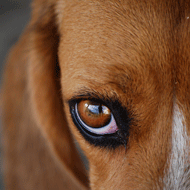
Campaigners call for tougher penalties for animal cruelty
An e-petition calling for tougher prison sentences for those who kill, bait or are cruel to animals has reached 100,000 signatures.
Closing on 30 March, the petition will be considered for debate by the Backbench Business Committee.
Elaine McCallion, who launched the petition, wants the government to "end the unnecessary suffering of our animals" by introducing greater penalties, including a lifetime ban on keeping animals, for those who engage in acts of cruelty to animals.
"I want to start a petition to raise awareness of all animals in the UK that are subjected to horrific deaths, baiting and acts of cruelty and neglect..." the petition states.
"We need tougher penalties for these crimes. People cannot play God and take the lives of our animals, it's not right, it's not humane and these crimes need stopping.
"Animals get such bad press and if they attack one time too many are put to sleep. So why should humans be allowed to get away with murdering, baiting and being cruel to our animals."
When the petition reached 10,000 signatures, the government published the following response: "The Government abhors animal cruelty. Powers for local authorities and police to investigate and take action in cases of suspected cruelty are provided in the Animal Welfare Act 2006.
"Under the 2006 Act, the maximum penalty for causing unnecessary suffering is a fine of £20,000 or six months imprisonment, or both. In addition, the court can impose post-conviction penalties on anyone found guilty of causing unnecessary suffering to an animal by disqualifying anyone from having any influence over the keeping of animals for as long as the court see fit."
To sign the petition, visit:
http://epetitions.direct.gov.uk/petitions/63445P



 The Animal and Plant Health Agency (APHA) has updated its online reporting service for dead wild birds.
The Animal and Plant Health Agency (APHA) has updated its online reporting service for dead wild birds.